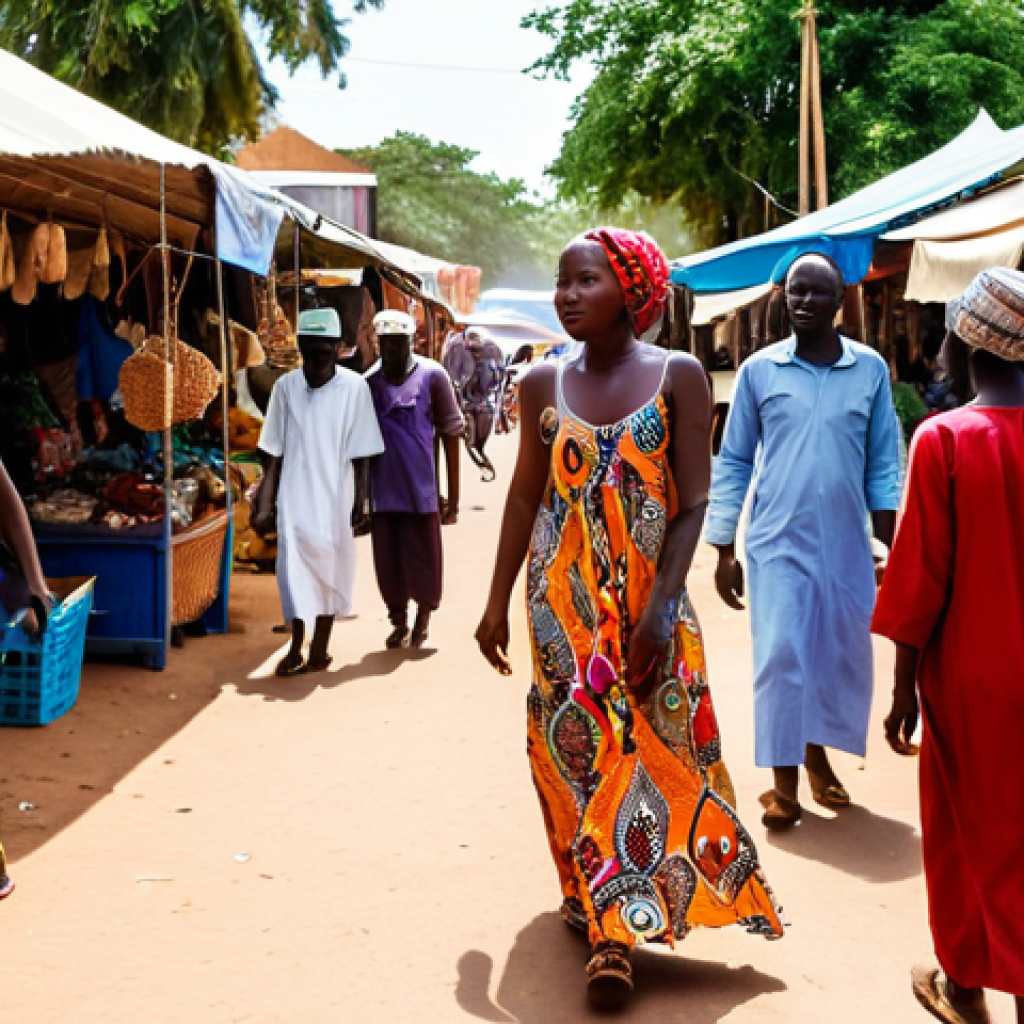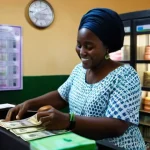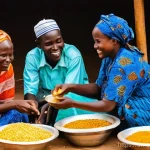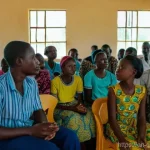Planning a solo trip as a woman is always an adventure, and when the destination is somewhere like The Gambia, a few extra precautions are definitely worthwhile.
From my own experience traveling in West Africa, I’ve learned that being prepared and informed can make all the difference in feeling safe and confident.
While The Gambia is known for its friendly people and stunning landscapes, it’s essential to be aware of the local customs and potential challenges. The rise of digital nomadism and solo female travel is transforming how we explore the world, but let’s dive deeper into what specifically you need to know about staying safe in The Gambia, blending the ancient traditions with modern travel expectations.
You might be surprised by a few things! Let’s get the facts straight.
Understanding Cultural Norms in The Gambia
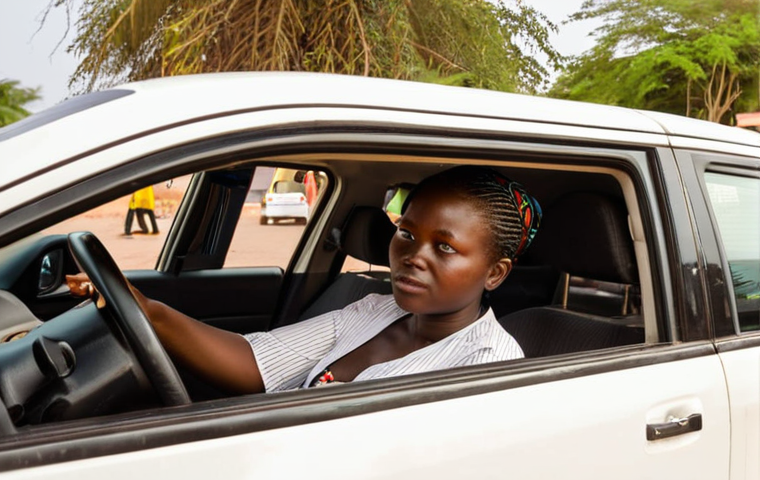
Navigating a new culture is exciting, but it’s also crucial to understand and respect local norms. In The Gambia, greetings are a big deal. It’s not just a quick “hello;” expect elaborate exchanges, especially when meeting elders.
This shows respect and establishes a positive connection. I remember once rushing to a meeting, and I almost skipped the customary greetings. Big mistake!
The entire conversation felt awkward until I took the time to properly greet everyone. It’s these small gestures that can make or break your interactions.
1. Dressing Appropriately
Gambian society is relatively conservative, especially outside of tourist areas. As a woman, dressing modestly is advisable. Think loose-fitting clothing that covers your shoulders and knees.
I usually pack lightweight maxi dresses, skirts, and tops that provide good coverage while keeping me cool in the heat. You don’t need to completely overhaul your wardrobe, but being mindful of local customs goes a long way in earning respect and avoiding unwanted attention.
2. Public Behavior
Public displays of affection are generally frowned upon. While holding hands might be acceptable, avoid anything more intimate. Also, be mindful of your voice level.
Loud conversations can be seen as disrespectful. I once witnessed a tourist arguing loudly on the phone, and the disapproving stares from the locals were palpable.
It’s all about being considerate and adapting to the local environment.
Transportation Tips for Solo Female Travelers
Getting around safely is a top priority, especially when you’re on your own. The Gambia offers various transportation options, but some are safer than others.
From personal experience, I’ve found that a bit of planning and research can make your journeys much smoother and secure.
1. Reliable Taxi Services
Opt for registered taxis whenever possible. These are usually yellow or green and have license plates that are easy to identify. Before getting in, negotiate the fare to avoid any surprises later.
I always make sure the driver knows my destination clearly and confirm the price beforehand. It might seem a bit assertive, but it’s a simple way to prevent potential scams.
2. Avoiding Bush Taxis at Night
Bush taxis (shared taxis) are a common mode of transport but can be less safe, especially at night. They tend to be overcrowded and may not always follow the safest routes.
If you must use them, try to travel during daylight hours and sit near the driver. For nighttime travel, it’s better to arrange a private taxi through your hotel or a trusted source.
3. Utilizing Tourist Transport
Some tour operators and hotels offer private transport services specifically for tourists. While they might be more expensive, they provide a higher level of security and comfort.
I’ve used these services for longer trips and found them to be worth the extra cost, especially when traveling alone.
Accommodations: Choosing Safe Options
Your choice of accommodation can significantly impact your safety and peace of mind. Selecting a reputable and secure place to stay is crucial, especially if you’re traveling solo.
I’ve learned this the hard way, having once booked a guesthouse that turned out to be less than ideal in terms of safety.
1. Reputable Hotels and Guesthouses
Stick to well-known hotels or guesthouses with good reviews. Check online forums and travel sites for feedback from other travelers, particularly solo female travelers.
Look for places with 24-hour security, well-lit premises, and secure doors and windows.
2. Reading Reviews Carefully
Pay close attention to reviews that mention safety or security issues. A few negative comments might be isolated incidents, but a consistent pattern of complaints should raise a red flag.
I once avoided a guesthouse solely based on multiple reviews mentioning petty theft. Trust your instincts and prioritize safety.
3. Consider Secure Neighborhoods
Research the neighborhoods where your potential accommodations are located. Some areas are safer and more tourist-friendly than others. Ask locals or your hotel staff for recommendations on which areas to avoid, especially at night.
Health and Wellbeing: Staying Healthy and Prepared
Staying healthy is essential for any trip, but it’s even more critical when you’re on your own. The Gambia has specific health risks that you need to be aware of and prepared for.
I always make sure to pack a comprehensive first-aid kit and consult my doctor before traveling.
1. Necessary Vaccinations and Medications
Consult your doctor well in advance of your trip to get the necessary vaccinations and medications. Yellow fever, typhoid, and hepatitis A are common concerns.
Also, malaria is prevalent in The Gambia, so you’ll need to take preventative medication. I never skip this step, as malaria can be debilitating.
2. Hydration and Food Safety
The Gambian heat can be intense, so staying hydrated is crucial. Drink plenty of bottled water and avoid tap water, which may not be safe. Be cautious about where you eat.
Stick to reputable restaurants or food stalls with high hygiene standards. Avoid raw or undercooked foods. I once got food poisoning from street food, and it completely ruined a few days of my trip.
3. Travel Insurance
Don’t leave home without comprehensive travel insurance that covers medical emergencies, evacuation, and theft. Make sure your policy includes coverage for the activities you plan to engage in, such as hiking or water sports.
Keep a copy of your insurance policy with you and leave a copy with someone at home.
Emergency Preparedness: Knowing What to Do
Despite careful planning, emergencies can happen. Knowing how to respond can make a significant difference in your safety and wellbeing. I always make sure to have a plan in place and keep important contacts readily available.
1. Important Contacts
Keep a list of important contacts with you, including the local embassy or consulate, your hotel, and emergency services. Program these numbers into your phone and write them down in case your phone is lost or stolen.
2. Local Emergency Numbers
Familiarize yourself with the local emergency numbers for police, fire, and ambulance. In The Gambia, the general emergency number is 911, but it’s also useful to have direct numbers for local police stations.
3. Communication Strategy
Establish a communication strategy with someone at home. Let them know your itinerary and check in regularly. If you’re going off the grid for a few days, inform them beforehand so they don’t worry unnecessarily.
Local Laws and Customs: Staying Out of Trouble
Understanding local laws and customs can help you avoid misunderstandings and potential legal issues. The Gambia has specific laws that may differ from what you’re used to, so it’s important to be aware.
1. Drug Laws
Drug laws in The Gambia are strict, and penalties for possession or use can be severe. Avoid any involvement with illegal substances. Even seemingly minor offenses can lead to serious consequences.
2. Photography Guidelines
Be respectful when taking photographs. Always ask for permission before photographing people, especially in rural areas. Avoid taking pictures of government buildings or military installations, as this may be prohibited.
3. Alcohol Consumption
While alcohol is available in tourist areas, be mindful of public consumption. Avoid drinking in public places that are not designated for alcohol consumption.
Also, be aware of local customs regarding alcohol, particularly during religious holidays. Here is an example of potential scams and safety concerns:
| Scam/Concern | Description | Prevention Tips |
|---|---|---|
| Taxi Scams | Drivers overcharging or taking longer routes. | Negotiate the fare before getting in; use registered taxis; confirm the route. |
| Petty Theft | Pickpocketing or theft of personal belongings. | Keep valuables secure; be aware of your surroundings; avoid displaying expensive items. |
| Fake Guides | Individuals offering unsolicited tours or services. | Book tours through reputable operators; verify credentials; be cautious of overly friendly strangers. |
| Beach Harassment | Aggressive vendors or unwanted attention on the beach. | Be firm in declining offers; avoid walking alone at night; stay in well-lit areas. |
Building Local Connections
One of the best ways to enhance your safety and enjoyment is by connecting with locals. Gambians are known for their hospitality, and building genuine connections can provide invaluable insights and support.
1. Engaging with Locals Respectfully
Take the time to engage with locals respectfully. Learn a few basic phrases in Wolof, the local language, to show your interest and respect. Ask questions about their culture and traditions.
I once spent an afternoon learning how to cook a traditional Gambian dish with a local family, and it was one of the highlights of my trip.
2. Seeking Advice and Recommendations
Don’t hesitate to ask locals for advice and recommendations. They can provide valuable insights into the best places to visit, the safest routes to take, and the most reliable services to use.
I’ve often found that locals are more than happy to share their knowledge and help you navigate the area.
3. Supporting Local Businesses
Support local businesses by shopping at local markets, eating at local restaurants, and using local services. This not only helps the local economy but also fosters positive relationships with the community.
I always make it a point to buy souvenirs directly from artisans, rather than from tourist shops, to ensure that my money goes directly to the people who created the items.
Navigating solo travel in The Gambia can be an incredible experience. By being mindful of cultural norms, prioritizing your safety, and connecting with locals, you can create memories that will last a lifetime.
Remember, preparation is key, so do your research, trust your instincts, and embrace the adventure.
In Conclusion
Traveling alone in The Gambia offers unique opportunities for personal growth and unforgettable experiences. By prioritizing safety, respecting local customs, and embracing the warmth of Gambian hospitality, you can create lasting memories. Always remember that preparation is crucial, but so is embracing the unexpected adventures that come your way. With a little planning and an open heart, your solo journey to The Gambia will be nothing short of extraordinary.
Good to Know Information
1. SIM Card: Purchase a local SIM card at Banjul International Airport or in the city to stay connected and avoid high roaming charges. Companies like Africell and QCell offer affordable data packages.
2. Currency Exchange: The Gambian Dalasi (GMD) is the local currency. Exchange your currency at banks or licensed exchange bureaus for the best rates. Avoid unofficial money changers.
3. Haggling: Bargaining is common in markets and with taxi fares. Negotiate prices respectfully, but be firm. A good starting point is offering half the initial price.
4. Tipping: Tipping is appreciated for good service in restaurants, hotels, and for tour guides. A 10% tip is generally considered appropriate.
5. Power Plugs: The Gambia uses Type G power plugs (British standard). Bring a universal adapter to charge your devices.
Key Takeaways
Respect Cultural Norms: Be mindful of local customs, especially in greetings, dress, and public behavior.
Prioritize Safe Transportation: Use registered taxis, avoid bush taxis at night, and consider tourist transport.
Choose Secure Accommodations: Stay in reputable hotels or guesthouses with good reviews and secure facilities.
Stay Healthy and Prepared: Get necessary vaccinations, stay hydrated, and carry comprehensive travel insurance.
Know Emergency Procedures: Have important contacts and emergency numbers readily available, and establish a communication strategy with someone at home.
Frequently Asked Questions (FAQ) 📖
Q: What are some essential things to pack for a solo female trip to The Gambia, especially considering safety?
A: From my experience, a few items are absolutely crucial for staying safe and comfortable. First, a portable door lock or a door stop alarm can give you peace of mind in accommodations.
Also, packing a small personal safety alarm is a good idea, just in case. Beyond that, a good quality first-aid kit with medications for stomach issues (traveler’s diarrhea is a real possibility!) is a must.
Don’t forget mosquito repellent with DEET and a mosquito net, as malaria is present. And lastly, a headlamp or small flashlight is invaluable for navigating poorly lit areas at night.
I once stumbled into a huge pothole in the dark in a village and definitely learned my lesson! Oh, and a universal adapter – you’ll thank me later.
Q: Are there any specific cultural norms I should be aware of as a solo female traveler in The Gambia to avoid unwanted attention or misunderstandings?
A: Absolutely! Respect for local customs goes a long way. Dress modestly, especially when visiting rural areas or religious sites; covering your shoulders and knees is generally a good idea.
Be aware that public displays of affection are frowned upon. Also, it’s common for men to approach women, sometimes quite persistently. A firm but polite “no, thank you” is usually effective.
I learned quickly that avoiding eye contact sometimes helps deter unwanted advances. Lastly, always ask permission before taking photos of people. Locals truly appreciate the respect.
Q: What are some reliable and safe transportation options for getting around in The Gambia as a solo female traveler?
A: This is a big one. While bush taxis (shared minivans) are common and cheap, they can be crowded and uncomfortable, and I wouldn’t recommend them alone, especially at night.
Opting for tourist taxis or pre-booked private cars is a much safer bet. Negotiate the fare beforehand to avoid any surprises. Another option, if you’re comfortable, is to hire a local guide with a trusted reputation for day trips; they can provide valuable insights and help navigate unfamiliar areas.
I used a fantastic guide recommended by my hotel in Banjul, and it made all the difference in feeling secure and getting to experience the real Gambia.
Just be sure to read reviews and get recommendations from reliable sources before booking anyone.
📚 References
Wikipedia Encyclopedia
구글 검색 결과
구글 검색 결과
구글 검색 결과
구글 검색 결과
구글 검색 결과
